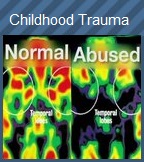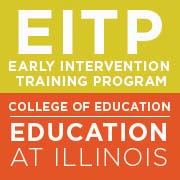Early Childhood Trauma for Early Intervention Providers
Course Outcomes:
Please scroll down for outcomes per discipline and other information, such as Target Audience, Course Content and Level
Course intent: To provide speech language pathologists, occupational therapists, physical therapists and other disciplines with the implications of the Harvard University, Child Study Center research and recommendations so that they may impact in a positive way on the child’s emotional milieu within the home, in the context of rendering intervention services.
Relevance to occupational, speech language pathology, physical therapy & other early intervention providers: Aforementioned disciplines therapists and other early intervention providers treating children between the ages of 0-3 are on the front line of detecting possible toxic stress to the child, recommending social services, and impacting on the child by being a consistent surrogate caregiver as an extension of their early childhood therapeutic intervention in the home.
Outcomes:
Provider will be able to: Identify the harmful effects of chronic toxic stress to the mind and body of a child over the short and long terms
Provider will be able to: Identify the biological neuroendocrine sequence set into motion by the release of stress hormones.
Provider will be able to: Identify those portions of the developing infant brain that are most affected by the chronic toxic stress, and how they impact on memory, learning, and impulse control due to architectural changes in the hippocampus and temporal lobes.
Provider will be able to: Identify the critically restorative and healing role of sleep in a young child, and how this can impact on learning, memory and emotional stability.
Provider will be able to: Identify how brain-derived neurotrophic factor together with other factors can facilitate neurogenesis and engender improved neuro-plasticity.
Provider will be able to: Identify which activities unique to their discipline can counter the effects of toxic stress, and implement them to facilitate reduced risk to the toxic-stress exposed child entrusted to their care
Provider will be able to: Identify risk factors for child abuse for babies and infants
Provider will be able to: Identify the signs of toxic abuse by observation of the child
Provider will be able to: Identify the legal obligation – based upon the State practice acts of each State defining a professional obligation to report child abuse - of early intervention providers to report potential situations which may result in child abuse to the child entrusted to their professional care
Provider will be able to: fulfill their State obligatory imperative, based upon State early intervention regulations, that all early intervention providers be actively involved in a preventative manner, and be ready to react – via education &/or communication with early intervention service coordinators and officials - in a life-saving manner with respect to the child’s health and safety
Provider will be able to: Identify the ethical constraints and professional obligations imperative to early intervention professionals vis-a-vis child abuse and neglect, as well as mandated reporting
Target Population: SLP, Audiologists, OT, COTA, PT, PTA, SW, SI/SE
Speech Language Pathology
Using clinical and research-based exploration, this course allows the participant to develop and understand the impact of chronic toxic stress in the very young child. Participants will learn about the definition of Early Childhood Trauma. This course will discuss the evolution and biology of Early Childhood Trauma. Participants are introduced to signs and symptoms as well as health impairments related to Chronic toxic stress.
Learning Outcomes: Participants completing this course will have enhanced knowledge and skills in the following areas:
Target Audience: Speech Language Pathologists, Speech teachers and Audiologists, Occupational therapists, COTA's
Course Level: Various
Content Area: Professional
Speech Language Pathology:
Intermediate 7060 Patient/Client Safety and Prevention of Medical Errors
Level: Various
Content Code: Related
AOTA Classification Codes
OT Classification Code:
Professional Issues
Contemporary Issues & Trends
Ethics
Professional Development & Continued Competency
Target Audience: all audiences, Introductory, Professional, Legal, Legislative, Regulatory & Reimbursement Issues: federal/ state regulatory statutes
Contemporary Issues & Trends: Ethics, EBP
AGENDA
- Preface
- Metaphorical Paradigm
- Introduction
- Types of Stress
- Trauma’s Impact on the Body
- Trauma’s Impact on the Brain
- The Brain, Microglial Cells and Sleep
- The Mind’s Reaction to Toxic Stress and Resultant Trauma
- Vicious Vs. Virtuous Cycles
- Cognitive Behavior Therapy
- The Role of an Early Intervention Provider
- Serotonin, BDNF, & Kynurenine
- Sleep
- Triune Brain Model
- PTSD
- Psychological Triggers
- Defining Emotional, Physical & Sexual Abuse







